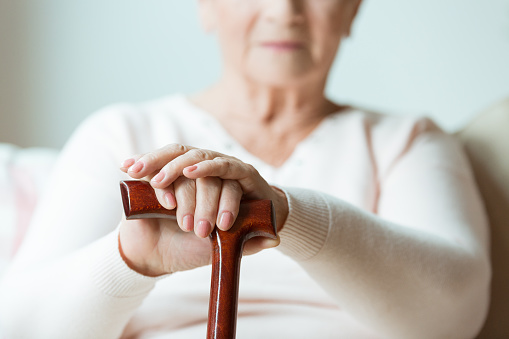
Did you know that as many as half the people living in senior residential care facilities in the U.S. suffer from some kind of cognitive decline?
That’s according to The Atlanta Journal-Constitution, which in recent months has been publishing an important series about Georgia’s senior care industry. The newspaper reports that those with dementia have a high risk for abuse, injury and death. The paper found that this was due to gaps in the state’s laws and lax oversight.
They reviewed thousands of government records involving senior care facility residents with Alzheimer’s or another form of dementia. They uncovered more than 100 cases where residents managed to wander away from facilities over a four-year period. It also identified more than 90 cases involving staff members abusing residents with dementia.
Given this disturbing record, you might think Georgia’s state government would conduct more intense oversight of senior living facilities with memory care units. In fact, the state does not keep a list of which assisted living facilities or personal care homes have such units, according to The Atlanta Journal-Constitution.
What does current law require?
Georgia does require that caregivers in memory care units receive special training within the first six months of employment. The focus of this training is on how to handle patients with dementia. Despite the more intense demands presented by these patients, the staffing requirements in these units are the same as requirements in regular facilities. They include one caregiver per 15 residents per day, and one per 25 residents at night.
Other states have higher standards. For example, West Virginia and Alabama require higher staffing and a separate licensing process for facilities where patients with advanced dementia live, according to the Atlanta Journal-Constitution. In Mississippi, each resident with dementia must receive three hours of direct care each day. Also, a registered nurse or licensed practical nurse must be present on all shifts.
A push for change
Efforts are underway to change the status quo in Georgia. Advocates for seniors are trying to boost funding for the agency in charge of licensing and inspecting health-related facilities across the state, including senior care homes.
“We think it’s incumbent on the legislature to react to all this information,” said Kathy Floyd. Floyd is the executive director of the Georgia Council on Aging. She spoke earlier this month at a public hearing before the House Appropriations Health subcommittee. The Georgia Chapter of the Alzheimer’s Association is also pushing for more funding.
Meanwhile, there are efforts underway in Washington D.C. to improve staffing requirements at nursing home facilities, as we previously detailed. The Quality Care for Nursing Home Residents Act was introduced in both the U.S. House of Representatives and the U.S. Senate last November. The backdrop to this is the reality that incidents of abuse and neglect more than doubled at these facilities between 2013-2017, according to a government watchdog report. The leading causes were found to be poor training, inadequate staffing and bad applicant screening.
Accountability matters
Holding those responsible for patient abuse or neglect accountable matters. It is an important part of making systemic changes to Georgia’s senior care industry happen.
If someone in your family has been victimized in a nursing home or assisted living facility, you have the right to take legal action. Seek the counsel of an experienced attorney. For over a decade, Atlanta attorney George S. Johnson and his skilled legal team have brought negligent operators in the senior care industry to justice. Contact the Law Office of George S. Johnson in Georgia today.
